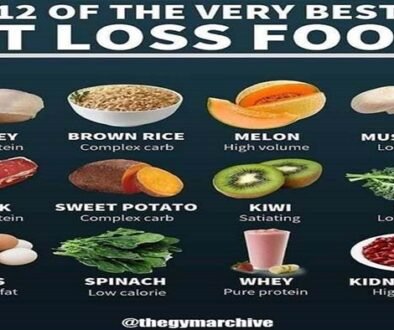What Are the Weight Loss Results of a 4-Day Water Fast?
It is a form of an eating pattern wherein there is complete abstinence from all forms of food consumption and is supplemented only with water intake within a certain period. Recently, the idea has been discussed as being advantageous to health and a quick reduction in body weight. Such a type of fasting might be done on different time scales; one of them is a 4-day water fast. This is a method that may be targeted by most people when trying to reduce weight within a very short span. But just how much can you really lose weight on a 4-day water fast, and what effect does it have on other systems within your body?
1. Expected Weight Loss Within a 4-Day Water Fast
Weight loss within a 4-day water fast would depend on a number of factors, such as starting weight, metabolic rate, and level of activity. However, just about everyone is expected to lose within a range of 3 to 6 kgs, that is, approximately 6.6 to 13.2 pounds. Here is a breakdown of why this may be so:
Initial Water Loss: Within the first 24-48 hours, energy is provided by the breakdown of water-stored glycogen in the liver and muscles. Every gramme of glycogen stores approximately 3 grammes of water. When these stores are depleted, water expulsion, often resulting in rapid weight loss, is responsible for much of the initial scale drop.
Fat Loss: The metabolism shifts after the expenditure of glycogen stores and begins to utilise fat for fuel by going into a state of ketosis. Although rates differ, after the second day of fasting, it does become one of the majors that supply energy. In such a short time, the amount of real fat loss is tremendously negligible. Most of the weight lost will still be water weight and lean mass rather than significant amounts of fat.
Muscle Loss: Long water fasting can cause some breakdown in muscles, as the human body might start to use muscles for energy, especially when not doing any form of resistance training in the course of the fast.
2. Other Effects of a 4-Day Water Fast
While weight loss may be the major aim of a water fast, one must also consider other effects the fast has on your body.
Mental Clarity and Ketosis: Once the body reaches a ketogenic state, usually within 24-48 hours, many report a higher state of mental clarity and focus. This is due to ketones, which become an alternative energy source for the brain when glucose from carbohydrates is not available.
Reduced Inflammation and Autophagy: Fasting provokes autophagy-a process whereby the body cleans up broken cells and regenerates new cells. This “clean-up” at a cellular level may help reduce inflammation and improve long-term health. These benefits generally become much more pronounced after longer fasts, but even a 4-day fast can present some benefits.
Electrolyte Imbalance: During a long-term water fast, the human body depletes itself of crucial electrolytes necessary to carry out heart and muscle functions. These include sodium, potassium, and magnesium. Symptoms could also be in the form of dizziness, headaches, and muscle cramping due to this very imbalance.
3. Risks and Considerations
While a 4-day water fast can result in notable weight loss, there are risks that must be carefully weighed:
Dehydration: Ironically, besides intake of water, you can get dehydrated with the loss of electrolytes and due to the reducing ability of your system to retain fluids in the body.
Muscle Breakdown: Although fat burning is the goal, during longer fasts, there is a loss of muscle tissue, which is not wanted because this can reduce your metabolism and general strength.
Refeeding Syndrome: Incorrect breaking of a fast with large meals or highly processed food leads to a risky condition called refeeding syndrome, a condition where sudden intake of food replaces your body’s electrolyte balance.
4. Can a 4-Day Water Fast Be Sustained for Weight Loss?
In some cases, the 4-day water fast may offer extremely quick weight loss; however, this is not a long-term solution. Much of the initial weight loss will undoubtedly be water and depletion of glycogen stores. By the time normal eating is resumed, much of the lost weight would be put back on. Probably the best approach aimed at long-term fat loss will be through the use of intermittent fasting combined with a healthy diet and regular exercise. Long-term weight management might also be associated with these activities.
Conclusion
A 4-day water fast will most definitely cause a reduction of weight, but generally begins with a radical decrease in body water and glycogen stores, and as the time continues, also involves some losses in fat. On the other hand, there are several risks associated with water fasting, such as a potential electrolyte imbalance and muscular losses. As such, these practices should be tackled with much caution and, where possible, under the supervision of a health professional. Instead of these short-term tactics, the approach to weight loss should be balanced and done over a period for a long-term weight management outcome.



